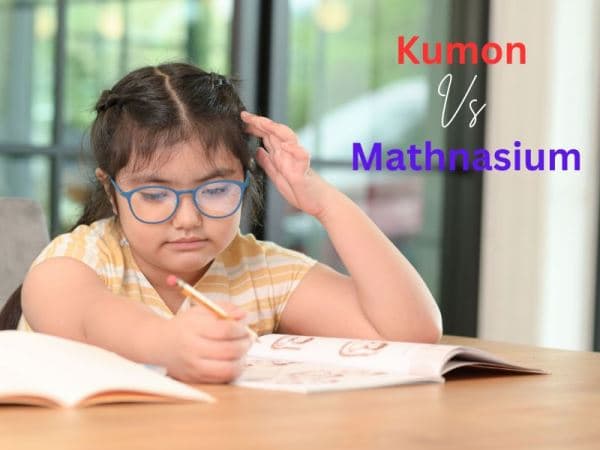Do you intend to enroll your child in school? Would you admit them to a preschool or a kindergarten? Some readers may have already been perplexed by the final two words since they often use them synonymously. So, do you know the difference between preschool and kindergarten?
Preschool is a type of educational institution that introduces small kids to a formal education system primarily through play and happiness. As a result, the child develops an interest in exploring and learning new things. It increases children’s thirst for education.
On the other hand, kindergarten is a more disciplined phase of preschool that often takes a more straightforward learning approach.
Since many people don’t know the difference between preschool and kindergarten, this article will focus on their fundamental differences. Besides, the readers can explore other facts and common FAQs. So, let’s begin.
What is a Preschool?
Preschool is an early childhood education activity in which children learn different things with fun under the supervision of highly trained professionals. The goal is to introduce brilliant young minds to formal education in an enjoyable and safe environment.
While some people take daycare as equivalent to preschool, it is vital to understand that preschools are more than just daycare that focuses on development through learning rather than merely allowing parents to work.
The structure of preschool varies from state to state. However, preschools in most states have three levels:
- Toddler (Age: 2-3)
- Nursery (Age: 3-4)
- Pre-K (Age: 4-5)
What are the advantages of Preschool?
There are numerous advantages of preschool. The following are the primary benefits:
- Improving elementary learning.
- Fostering children’s natural eagerness to learn and explore.
- Increasing self-esteem and behavioral and social development.
- Encouragement of kid’s creative thinking.
- Development of children’s emotional capabilities.
- Fostering oral and communication skills.
What is Kindergarten?
Kindergarten is a more formal education program that focuses on learning through entertaining yet practical activities to improve skills. Students must attend the class regularly and for a longer time than in preschools. However, most kindergartens, like preschools, try to educate children’s social skills, self-esteem, and academic competency.
“Kindergarten” is a German phrase that refers to “garden for children.” This concept refers to an environment where children can develop naturally. Friedrich Froebel, a German educator, coined this term in 1837 because he felt that children should have the chance to play and explore in a natural setting before starting more conventional education. This feature is still prevalent in kindergarten programs today, where the emphasis is on play-based learning.
Now some may ask, “Is Kindergarten a preschool or an elementary school?” In some states, Kindergarten education is optional. In these states, people consider Kindergarten education as a preschool activity.
However, kindergarten education is mandatory for children under the age of five in some countries, such as the United States of America, Canada, and some states of Australia. Children aged 3-5 can enroll in kindergarten in these states after completing an entrance exam.
The admission exams includes basic concepts of mathematics, English, and moral science. Most of the time, the admission exam is pretty simple and informal. However, some prestigious schools take a more formal approach to these tests. Therefore, preschools have to prepare the students for this exam.
Advantages of Kindergarten Education
The key advantages of kindergarten education are as follows:
- It teaches young children through play-based activities.
- It promotes the development of a child’s self-esteem and other qualifications.
- It provides a pleasant educational environment that encourages fast learning.
- It offers a wide range of activities that stimulate and engage children in creative activities.
- It helps children prepare for primary school and build social skills.
Difference Between Preschool And Kindergarten
After exploring the basic concept of preschool and kindergarten, it’s time to discover the key differences between preschool and kindergarten. So, let’s explore the primary differences:
| Criteria | Preschool | Kindergarten |
| Definition | An educational institution for children who are too little to attend school. | A sort of preschool that focuses on the education of children aged between three and five. |
| Origin | A Latin phrase where “pre” refers to prior and school refers to a learning place. | A German expression that means “garden for children.” |
| Types of institution | Significant types of preschool include: Montessori, Waldorf, Reggio Emilia, Bank Street. | In some states, there are two divisions in kindergarten education: Lower Kindergarten and Upper Kindergarten. |
| Children’s suitable age | Preschools are ideal for kids aged between 2 to 3. | Kindergartens are perfect for kids aged between 3 to 6. |
| Type of education | Preschool is a sort of informal education that trains children for formal schooling. It is not mandatory. | Kindergarten marks the start of formal schooling. It is compulsory in many countries around the world. |
| Class type | Preschool kids generally attend school once or twice a week. | Students attend classes regularly. |
Note:
In some countries, people use the words “kindergarten” and “preschool” synonymously since they refer to the same educational method.
Frequently Asked Questions:
What is the distinction between preschool and pre-K?
There are many differences between preschool and pre-K regarding class focus, age, and curriculum structure. But the main difference is that preschool doesn’t focus on academic studies. It focuses on elementary learning, enhancing a child’s emotional and communication skills, while pre-K focuses on basic academic studies, such as math, English, and basic science. So, the kids can pass their entrance exam to kindergarten.
Which comes first: kindergarten or nursery?
There are several levels of preschool education. Nursery schools are one of them where professionals teach little youngsters for 3 to 5 hours. Students can enter kindergarten schools after completing nursery education.
Conclusion
While many become too confused about preschool and kindergarten schools, this article has gone through the core features of preschool and kindergarten schools. It will assist parents in deciding where to begin their child’s education. Furthermore, I have provided some additional information regarding preschool and kindergarten schools. I hope the readers have found the article informative and helpful.




